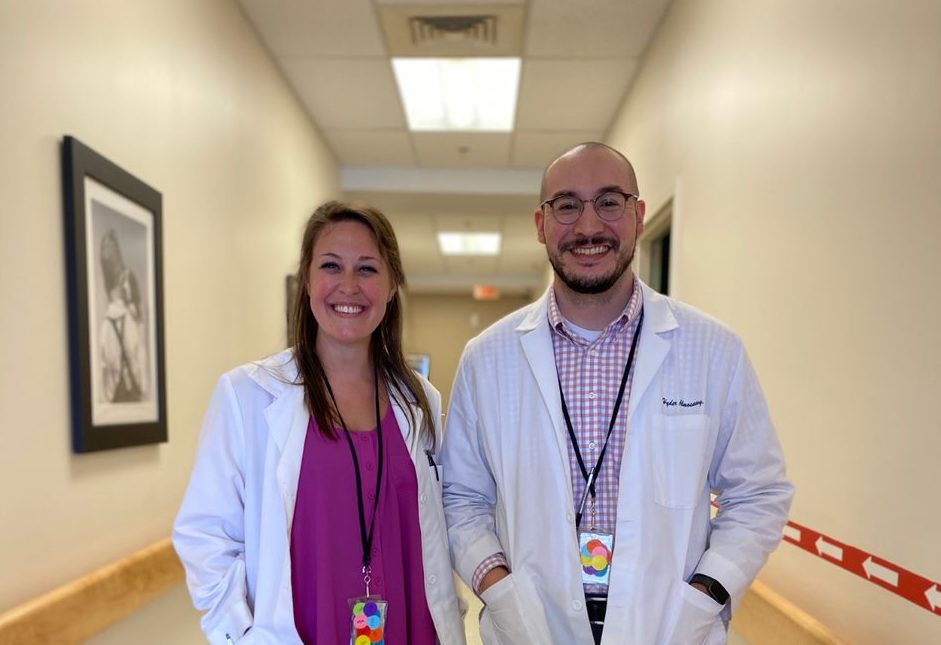Deciding whether to do a residency came down to one burning question: Would I regret not doing one? I exhausted every resource, talked to every person I could and even asked my mom what I should do. At the end of the day, I knew that I would regret a decision not to pursue a residency … so I finalized my rankings and hit submit. I have not regretted that decision for one second. My residency has given me my current job in a practice setting in which I love; and I’m indebted to my residency experience for that.
For whatever reason, the applicant pool of potential residents has decreased year after year, and I don’t understand why. Optometry is becoming a more medical profession and the residency experience puts you in the throes of said contemporary model. We as doctors of optometry are not simply refractionists, we are medical providers and I wanted to be the most prepared medical provider I could be. What I learned over the course of one year is leaps and bounds more than I would have learned over the course of my first few years in practice straight from optometry school. As they say, “residency is five years of experience in one.” I believe that. Without my experience as a resident, I don’t think I would be nearly as prepared as I am to see patients on a day– to– day basis.
Yes, you can certainly graduate optometry school and go directly into practice. There’s absolutely nothing wrong with that, but I was told during one of my residency interviews that doing a residency can only open more doors for you. Certain jobs you seek after graduation (i.e., some optometry schools, VA’s, or even OD/MD practices) place a preference on residency– trained doctors. When the time came, I didn’t want me not doing a residency to determine whether I got the job I wanted. I wanted to leave no stone unturned and pursuing the extra year of training has allowed me to be where I am today. I am confident that my decision to pursue a residency has made me a better doctor, and that’s all I can be grateful for.
If you’re interested, I can give you some quick guidelines and important dates. First, start asking for letters of recommendation now from your professors and your attendings. If you’re on rotations or even if you haven’t started yet, think of who would be an asset in writing a letter of recommendation for you. Start putting together your CV if you haven’t already and have more than one person proofread it. On Oct. 7, 2020, the ORMatch opens and you can register for the service and eventually submit residency rankings. There’s a fee of $350 to register ; it’s not a small amount by any means, but if you’re on the fence I would at least try your best to at least register and keep the option open because the recommended deadline to register is Dec. 31, 2020. Then on March 19, 2021, you have to submit your final rankings and about 10 days after, your match results are emailed to you. If you go to natmatch.com/ormatch/schedule.html you can find a more specific list of dates so you can ensure you’re on time for everything.
Lastly, I think the most important thing you can do is talk to people. Talk to professors and students in classes above you who did and did not do a residency to find out why. See what each individual says so that when the time comes, you are making a decision with as many resources exhausted. You can view the ASCO Residency Directory and reach out to programs to inquire about what they offer and even get in contact with current and past residents for their input. If you’re zeroing in on a list of places to pursue a residency, ask as many people who trained there as residents what they did and did not like about their program. Ask about the extra work involved, as most programs require publishable papers and some formal presentations. Get a firm grasp on each site as you narrow down and solidify your rankings. And most importantly, do not rank a site you wouldn’t be absolutely thrilled to go to. The scramble isn’t a death sentence if you don’t match— plenty of my colleagues ended up in the scramble and loved where they ended up. At the end of the day, things work out how they are supposed to!
To end, I don’t know if anyone has ever done a residency and regretted it. All I can speak of is my own experience, and I truly feel that choosing to pursue a residency has prepared me for the “real world.” Honestly, who could regret that? Not me.



